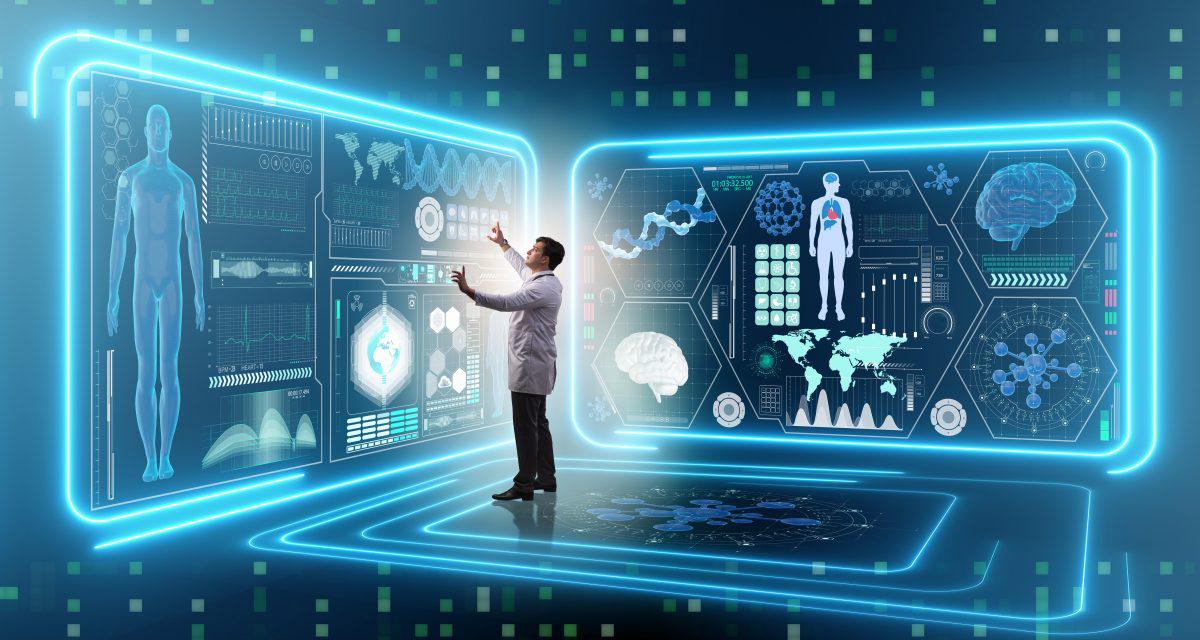The challenges of AI (Artificial Intelligence) in health care services require access to large amounts of data to be productive. AI is a crucial topic in almost every industry. Another challenge is the risk of bias if the data is used to teach algorithms that are not a substitute for the whole population. There is a lack of evenness across different artificial intelligence systems, making it complicated to compare results and unite data from multiple sources. AI (artificial intelligence) data can’t be trusted unless they’re well-developed and trained with the correct data. For that, you should learn about the challenges of AI in detail and how to overcome them.
What is AI in healthcare services?
AI in healthcare services is used to explain the application of machine learning (ML) algorithms and other cognitive technologies in medical settings. Computers and other machines mimic human cognition and are competent in thinking, learning, making decisions, and taking action. Regular AI use in healthcare services involves NLP. Applications that classify and understand clinical documentation. It is also used to discover links between power surgical boots, genetic codes and maximize hospital efficiency.

Top five challenges of AI (Artificial Intelligence) in healthcare services
- Understanding AI’s ethical concerns and tackling biases
Bias can grow due to data used to develop the algorithms or even in the practical application of the output. For example, if cost is an element in determining a treatment plan, how do we know if the algorithm is still advocating the best course of treatment? Every healthcare AI member should be responsible for these solutions’ ethical use. They should address the potential for bias in their algorithms and keys.
- Overcoming employee hesitation and fear of automation
One of the biggest concerns is the fear that AI will eliminate or take jobs. But automation’s goal is not to eliminate jobs; they aim to put humans back into Human-centric work and use artificial intelligence to increase human troops. AI can automate manual, redundant data entry work and provide insights to enhance other groups.
- Delivering tangible ROI
While investigating AI technologies, it’s easy to get absorbed in all the options and potential applications. Maintaining the force for AI and automation, health systems need to look for projects that can show tangible value rapidly. The best place to deliver fast ROI is in operational applications of AI that use intelligent RPA technology to automate demanding administrative processes.
- Providing data security
Data security has been the mind of healthcare IT professionals for years. Cyber attacks have become common, and data contravention costs have grown. AI poses additional data security risks that need to be labeled not only risk deduction and compliance, but also to continue patient trust and privacy.
- Deploying at scale
To perceive AI’s advantages, organizations must deploy artificial intelligence at scale throughout the venture. As the health systems rush to execute new technologies and automate workflows, the potential for siloed solutions and governance rises, threatening AI’s success. Health systems must start by creating an enterprise strategy, planning scale, and concentrating governance system to supervise all AI projects.
These are the top five challenges of AI in health care services that you can face, and for that you should know and understand them carefully.

How to overcome the challenges of AI in healthcare services?
- You must understand how and why AI produces specific results.
- Test AI (Artificial Intelligence) more to prevent diagnostic errors.
- You need to utilize innovative ways of data annotation.
- Invest in privacy-enhancing technologies.
- You should provide training to evaluate and increase engagement among healthcare workers.
- Educate to reduce patient reluctance.
Benefits of AI in healthcare services
- Increase the efficiency of the diagnostic process.
- Reduce overall costs of running the business.
- Safer surgeries.
- Enhanced patient care and experience.
- Easy to share information.
- Gives better preventive care.
- Ensuring patient data quality.
- Accelerated drug development.
- Data security.
- Robot-assisted surgeries.
- Remote monitoring.
- Streamlined training.
- Smart health insurance.
- Location tracking and alerts.
- Risk prediction.

How is AI impacting the healthcare industry?
- Unifying mind and machine through brain-computer interfaces
Brain-computer interfaces coil acutely improve the quality of life for patients with ALS strokes, or locked-in syndrome, as 500,00 people worldwide experience spinal cord injuries yearly.
- Developing the next generation of radiology tools.
If you want to give us tissue samples, you will be able to achieve close registration.
- Expanding access to care in developing regions
Deficiencies of trained healthcare providers, including radiologists and ultrasound technicians, can significantly limit access to life-saving care in developing nations worldwide. The potential for this tech to grow. Access to healthcare is impressive.
- Advancing the use of immunotherapy for cancer treatment.
The therapies are nearly new, so few patients have been on drugs. Investigating data within one institution or across multiple institutions will be critical in augmenting the patient population to drive the modelling process.
- Making smartphone selfies into powerful diagnostic tools
Almost every year, a significant player in the industry starts to develop AI software and hardware for their devices. We generate more than 2.5 million terabytes of data daily in our digital world. The Makers believe they can use the data with AI to offer much more personalized, innovative, and faster services in cell phones.
ALSO READ: Interesting Deep Learning and AI Facts You need to know
Conclusion
The challenges of AI in health care services need entry to the considerable amount of data that should be productive.The health system faces many challenges, including the risk that the data we are using to develop algorithms will give a bias to some behaviors. There is also a lack of evenness across different artificial intelligence systems, which makes it difficult to compare results and join data. Artificial intelligence technologies are present in modern business and we are using them to apply every day. You can overcome these challenges by following the methods and making the right strategies.
ALSO READ: Everyone Should Know – AI The Best System To Save Money And Time–3 Ways
